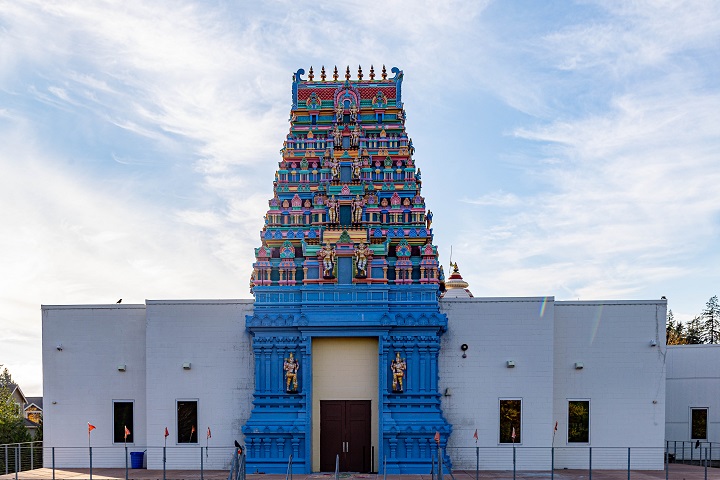Why Cow is Sacred in Hindu Religion: Spiritual Significance
Have you ever wondered why the cow holds such a revered place in Hindu religion? It’s a question that might have crossed your mind while observing cultural practices or hearing stories.
The cow is not just an animal in Hinduism; it’s a symbol of life and sustenance, deeply embedded in spiritual beliefs and everyday rituals. Imagine unlocking the secrets behind this sacred status—understanding the rich tapestry of history, spirituality, and tradition that surrounds it.
As you dive deeper into the mystical world of Hindu beliefs, you’ll discover that the cow’s significance goes beyond mere reverence. It touches upon moral values, social norms, and environmental consciousness. This connection is not only intriguing but also enlightening, offering you a fresh perspective on cultural diversity. By exploring the reasons behind this sacred status, you will gain insights into the essence of Hindu spirituality and its timeless wisdom. Your curiosity will be piqued as you uncover fascinating stories and facts that reveal why the cow is not just an animal, but a cherished symbol of prosperity and purity. So, are you ready to explore this captivating aspect of Hindu religion? Let’s delve into the myriad reasons and uncover the profound respect and love that Hindus have for the cow.
Historical Roots
Cows have been important in Hindu history for a long time. They give milk, which is very useful for families. Milk is used for making butter and cheese. Hindus believe cows are like a mother. This is because they provide so much for people. In old stories, gods love cows too. Cows are seen as gentle and kind. These traits make them special in the eyes of many.
Many people in India do not eat beef. This is because they respect cows. Cows are often part of festivals and prayers. Many Hindus see cows as a symbol of life. They represent earth and nature too. People often decorate cows with flowers. Cows are treated with love and care. This has been a tradition for many years.
Cultural Symbolism
The cow holds a special place in Hindu culture. It is a symbol of life and fertility. Many Hindus believe the cow is like a mother. It provides milk and helps people grow. Eating beef is not allowed for many Hindus. The cow is seen as holy and pure. People offer food to cows as a blessing. Temples often have cows nearby. This shows their importance in daily life. Respect for cows is deep in Hindu traditions. It is not just about religion. It is also about community and family values. Cows are gentle and kind, much like the teachings of Hinduism.
Mythological Connections
Cows have a special place in Hindu epics. They are often seen as symbols of wealth and prosperity. In the epic Mahabharata, there is a story of a divine cow named Kamadhenu. She could give anything her owner wished for. This made her very special. In the epic Ramayana, Lord Rama’s kingdom, Ayodhya, was filled with happy cows. This showed his rule was blessed.
Many legends tell about cows’ kindness. In one story, a cow saved a sage from danger. This sage then blessed the cow. People believe that cows are gentle and loving. Their milk is thought to be pure. This purity is why they are respected. Cows are not just animals in these tales. They are seen as nurturers and protectors.

Credit: www.nhsf.org.uk
Economic Importance
Cows help in farming. They pull plows to till the soil. This makes planting seeds easy. Cow dung is also a great natural fertilizer. It helps plants grow strong. Farmers use less chemicals because of it.
Cows give us milk, which is very healthy. Milk has protein and vitamins. Cow’s milk is used to make butter and cheese. These are important in many dishes. Cow dung is also used as fuel. It helps cook food in villages. In some places, cow urine is used as medicine.
Rituals And Practices
Hindus believe the cow is a holy animal. They see it as a symbol of life and fertility. Many families keep a cow in their homes. They offer it food and water daily. During special ceremonies, people place flowers on the cow. They also tie a colorful ribbon around its neck. The cow is then worshipped with prayers. These rituals bring peace and good fortune.
Many festivals honor the cow. Gopastami is one such celebration. It marks the day when Lord Krishna became a cowherd. People decorate cows with bright colors and flowers. They also offer sweet treats to the cow. Govardhan Puja is another festival. It follows Diwali and involves cow worship. Villagers create cow dung hills as part of the rituals. These festivals remind people of the cow’s sacred role.
Philosophical Teachings
Hindus believe in Ahimsa, meaning non-violence. It teaches kindness to all living things. Cows are peaceful and gentle. They don’t harm others. This makes them special to Hindus. People respect and protect them. Non-violence is a big part of Hindu life. It guides how they treat animals. Cows symbolize this belief. By caring for cows, people practice Ahimsa. This brings peace and harmony. It also shows love for nature.
Cows give many useful things. Milk, butter, and cheese come from cows. These are important in Hindu homes. They also provide dung for fuel and fertilizer. This helps crops grow well. So, cows are seen as symbols of abundance. They bring prosperity and happiness. Families cherish and respect them. By honoring cows, people show gratitude. This strengthens their bond with nature.
Modern Implications
Cows have special legal protections in many places. Laws stop harm to cows. These laws reflect deep cultural respect. Preservation efforts are strong. Government rules help safeguard these animals. Cow harm can lead to serious punishment. These measures show cultural values in modern times.
Cow protection is a hot topic today. People argue about rights and freedom. Many feel cows need more safety. Others want less control. Opinions clash in public talks. Some say laws are too strict. Others say they are not enough. This debate shows different views in society. Understanding these views is important. It shapes how people think and act. Cultural respect and modern needs must balance.
Conclusion
The cow holds a special place in Hindu beliefs. It symbolizes life and sustenance. Hindus respect cows for their nurturing nature. Cows provide milk, which is vital for nourishment. This connection makes them sacred in Hindu culture. Many rituals and festivals honor cows.
They are seen as a symbol of the Earth. Protecting cows means valuing life and nature. This deep respect showcases Hinduism’s emphasis on compassion. It highlights the spiritual bond with all living beings. Understanding this helps appreciate Hindu traditions better.
The cow’s sacred status is a testament to Hinduism’s rich cultural values.



